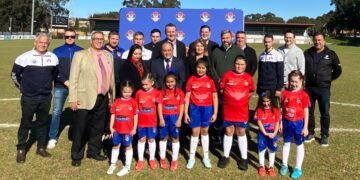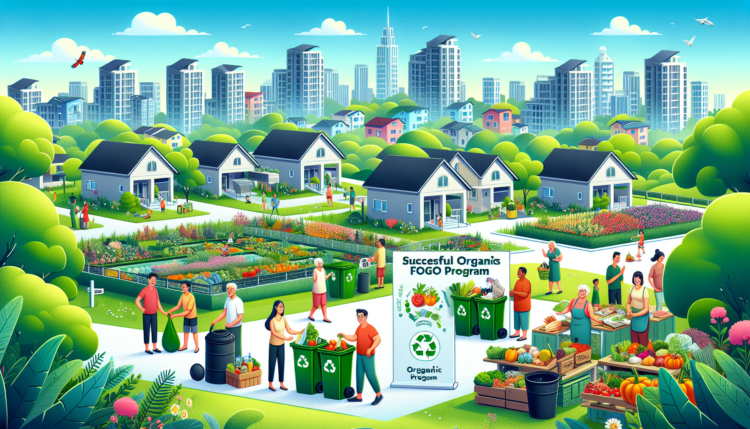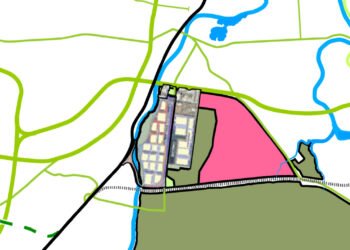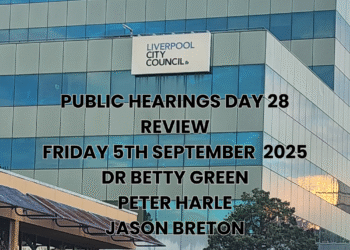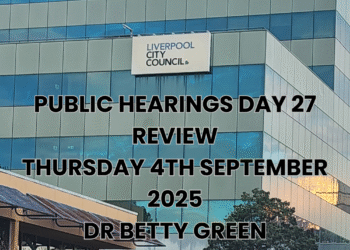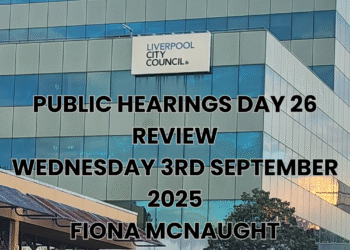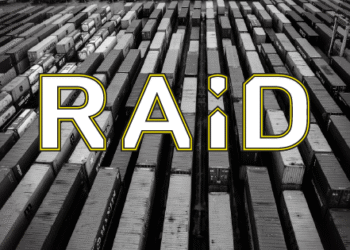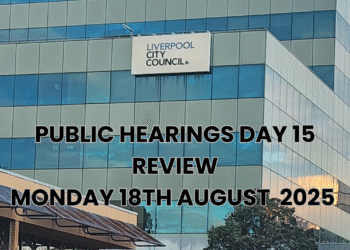Liverpool City Council will introduce a new Food Organics and Garden Organics (FOGO) collection service starting 7 July 2025, marking one of the city’s most significant waste management changes in recent years.
The Change Explained
From July, residents will be able to place food waste in their existing green-lid bins alongside garden waste and will be issued new FOGO bins in coming months . According to Council documents, this initiative hopes to process an estimated 22,000 tonnes of food waste that has previously just gone into landfill.
This substantial diversion from landfill will deliver greenhouse gas reductions equivalent to removing 4,300 vehicles from our roads.
The program forms a crucial part of Liverpool’s commitment to the NSW Government’s ambitious Net Zero Emissions target by 2050. By implementing FOGO ahead of the state-wide 2030 mandate, Liverpool joins progressive councils like neighbouring Fairfield in leading the way on organic waste management.
Financial Support and Implementation
The program has received significant backing, with Liverpool being among five councils sharing in $10.4 million of state government funding. Liverpool Council has secured $857,000 in funding for the program.
- $285,714 for kitchen caddies and caddy liners
- $571,429 for education and community engagement (YES thats right double the actual cost of the caddies and liners)
- Additional funding through the NSW EPA’s Waste Less Recycle More initiative
What Residents Will Receive
Every Liverpool household will be provided with:
- A kitchen caddy for convenient collection of food scraps
- Initial supply of 75 compostable caddy liners
- Ongoing supply of liners every six months
- Educational materials in multiple languages
- New bin stickers
- Access to community education programs
Liverpool’s organic waste will undergo a sophisticated transformation through state-of-the-art processing facilities, marking a significant shift from traditional waste disposal methods. This advanced processing system will ensure that household food and garden waste becomes a valuable community resource rather than a landfill burden.
The collected organic material will be carefully processed to meet the stringent Australian Standard AS4454 for composts, soil conditioners, and mulches. This certification ensures the end product is not only safe but also highly beneficial for agricultural and horticultural applications. The resulting premium-grade compost will be used to enrich agricultural land and gardens across the region, completing a true circular economy cycle.
What Can Go in your new FOGO Bin?
Approved items for green-lid bins will include:
- All food scraps (including meat and bones)
- Dairy products
- Fruit and vegetable peelings
- Coffee grounds and tea bags
- Egg shells
- Garden clippings and leaves
- Small branches
- Soiled paper towels and napkins
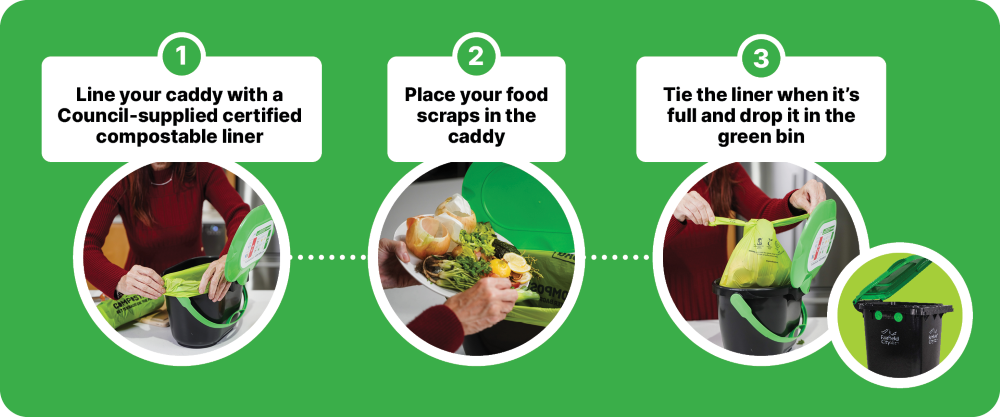
Fairfield Success Story Sets High Bar for Liverpool’s FOGO Journey
Fairfield City Council has emerged as a shining example of FOGO implementation success in Western Sydney, demonstrating what’s possible when communities embrace sustainable waste management practices. Their remarkable achievements have set an inspiring benchmark for Liverpool’s upcoming program.
Under the leadership of Mayor Frank Carbone, Fairfield’s FOGO program has achieved exceptional results that have caught the attention of councils across New South Wales. The community’s enthusiastic adoption of the program has led to a dramatic 28% reduction in general waste heading to landfill, while organic recycling has soared by an impressive 75%.
Perhaps most notably, Fairfield has maintained impressively low contamination rates of less than 2% – a figure that waste management experts consider exceptional for a metropolitan area. This remarkable achievement reflects the community’s strong commitment to proper waste sorting and the success of Fairfield’s comprehensive education program.
“Fairfield’s success demonstrates how effective community engagement and clear communication can transform municipal waste management,” according to NSW EPA documentation. The council’s approach has become a model for other municipalities, combining practical support with community education to achieve outstanding results.
The high participation rates in Fairfield’s program have been attributed to several factors, including:
- Strong multilingual community engagement
- Regular feedback to residents
- Consistent education programs
- Support from community leaders
- Clear communication about program benefits
Breaking the Landfill Cycle
Current NSW EPA research paints a concerning picture of traditional food waste disposal. When organic waste ends up in landfill, it undergoes anaerobic decomposition – a process that produces methane, a greenhouse gas 25 times more potent than carbon dioxide in terms of its environmental impact.
“The implications of food waste in landfill extend far beyond space constraints,” according to NSW EPA documentation. “Every tonne of food waste in landfill not only generates harmful greenhouse gases but also represents a missed opportunity to create valuable soil enrichments for our agricultural sector.”
Timeline and Next Steps
Key dates for residents:
- June 2025: Distribution of FOGO starter kits begins
- 7 July 2025: Official program launch
- Ongoing: Six-monthly distribution of replacement caddy liners
- Regular community education sessions throughout the rollout period
Residents seeking more information about Liverpool’s FOGO program can contact Liverpool City Council’s Customer Service Centre or visit the Council website. The Council will announce dates for community information sessions and educational workshops in the coming months.

